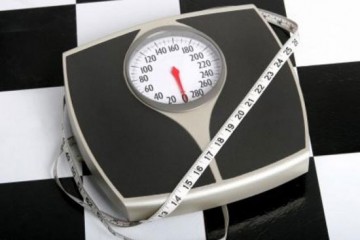Mothers Are Responsible For The Health Of Their Daughters
Over the years much research has been carried out on the socio-environmental factors that lead to weight gain and obesity. One of the main findings in the last 5 years has been that a mothers influence is very powerful on the eating habits of a girl or young woman.
It seems that girls are more likely to pick up on the eating habits of their mothers. This may be one of the reasons why girls are more likely to develop an eating disorder than boys – they see their mothers dieting and obsessing over their appearance, and as a result want to do the same.
What Mother Wants
In 2005 researchers from the Harvard Medical School published a report which showed how the mother-daughter relationship impacts on a girls health.
“Studies show that girls whose mothers diet and are concerned with their weight and shape are more likely than their peers to develop unhealthy weight control practices.”
It was found that on average 1 in 3 girls would often think about being thinner. Also, the main reason for a girl wanting to be thinner is that she believes that is what her mother wants. Boys also would tend to diet when they perceived their weight to be important to their mothers, but not to the same extent as the girls.
In fact, as long ago as 1999 a report in the International Journal or Eating Disorders found that a mothers opinion had a very powerful effect on her children:
“A mother’s comments about weight were significantly associated with her child’s concerns about gaining weight and with the frequency of trying to lose weight.”
There have been cases of anorexia that according to the victim of the disease were originally triggered by a single comment from their mother about how much food they are eating. In one case study a girl was asked by her mother at a young age, “do you really need an extra bread roll”. This triggered years of anorexia and other eating disorders.
Mothers Influence Starts at Pre-School Age
In 2006 a study by researchers from the Children’s Hospital of Philadelphia showed that children develop eating habits from a very young age. What was strange about the discover was that mothers who worry that their children are overeating end up with overweight children. Dr. Hillary Burdette found that generally even if a mother is obese and worries about her child overeating, she still end up feeding the child too much and sowing the seeds of weight problems and obesity early on.
Children born of obese mothers are much more likely to become obese themselves.
How To Reduce Childhood Obesity
Full family education is the only way to fight obesity if governments fail to increase control the food industry. Children respond in both positive and negative ways to their parents health and weight issues. Girls are likely to try to lose weight if they feel it is expected of them, especially if their mothers suggest that they need to lose weight. Boys are less influenced, but are still likely to change their lifestyle if their parents mention something.
Parents need to learn much sooner about their role in bringing up healthy children. Often by the time an obesity initiative can reach a family much of the damage is already done – attitudes and habits have formed and weight gain becomes the norm.
It could take several generations to educated people on healthy eating once again. People know that they should be eating healthily, but many still do not understand what is a healthy diet. The result is often yo-yo dieting with periods of weight gain followed by rapid and unhealthy weight loss. This gives the wring message to children. Healthy eating needs to start from early childhood and be followed by the whole family – children, parents, siblings and grand parents, as well as further encouragement in school.
References
“Weight Concerns and Weight Control Behaviors of Adolescents and Their Mothers“. Alison E. Field; S. Bryn Austin; Ruth Striegel-Moore; C. Barr Taylor; Carlos A. Camargo Jr; Nan Laird; Graham Colditz. Arch Pediatr Adolesc Med, Dec 2005; 159: 1121 – 1126. Abstract.
“Mothers, daughters and dieting: investigating the transmission of weight control.” Hill AJ, Franklin JA. Br J Clin Psychol. 1998;37:3-13.
“Parental input and weight concerns among elementary school children” Smolak L, Levine MP, Schermer F. Int J Eat Disord. 1999;25:263-271.
“Maternal Infant-Feeding Style and Children’s Adiposity at 5 Years of Age” Hillary L. Burdette, MD, MS; Robert C. Whitaker, MD, MPH; Waynitra C. Hall, MS; Stephen R. Daniels, MD, PhD
Arch Pediatr Adolesc Med. 2006;160:513-520.
-
The Quickest Method To Lose Weight - Womens Guide To Burning Fat Without Starving Or Silly Exercises!
The fastest method to lose weight is not
-
Evolution Of Hoodia Gordonii Diet Pills
Hoodia Gordonii is a unique plant, which
-
The Best Cardio for Weight Loss….Ever!
If you’re looking for a fitness program that will work for you l
-
Maintain A Clean Liver With These Simple Fat Loss Hints
Shedding fat should not be as difficult as many folks attempt to make
-
Are You Curious About the Way Proper Diet Enhances Weight Loss?
Resolving to lose those extra pounds, collected during the course
-
Capsiplex Evaluation
Capsiplex Assessment Have you ever hear
- DON'T MISS
- Citrus Fruits And A Healthy Cancer Prevention Diet
- Sugar is Killing You
- Fat Burning Exercise Choose One That Can Revive Your Bodys Own Fat Burning Dynamism
- Latest Fitness News- Keep You Healthy & Fit
- Does the Cause of Your Weight Problem Really Matter?
- Do You REALLY Want To Lose Weight?
- Asthma and Dieting
- How Bad is Drinking Alchol When Trying to Lose Weight?
- How to Set and Reach SMART Goals
- Free Daily Diet Plans to Fast Weight Loss




